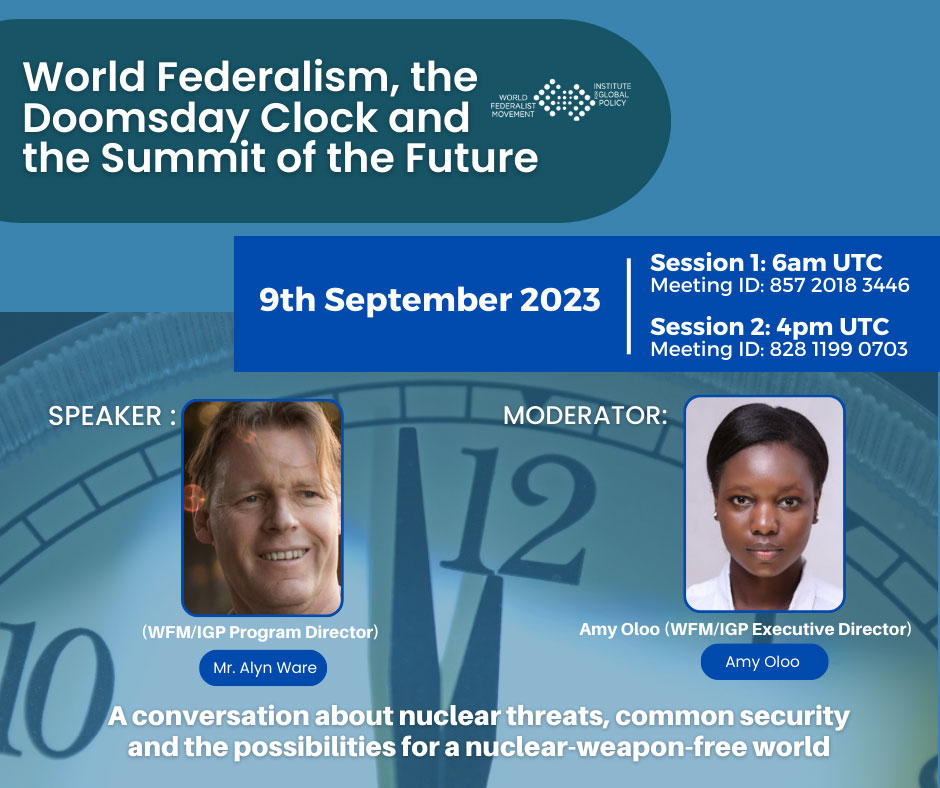Session 1 Recording: https://www.youtube.com/watch?v=DSJ4ZOKV5vY.
Session 2 Recording: https://www.youtube.com/watch?v=CjEabqFDD6M.
A conversation with WFM Program Director Alyn Ware about nuclear threats, common security and the possibilities for a nuclear-weapon-free world.
Saturday September 9
Session 1: 6am UTC (Timed for Asia/Pacific).
Moderated by Amy Oloo, WFM Executive Director.
Introduction by Tadashi Inuzuka, WFM Co-President
Registration link: https://us02web.zoom.us/meeting/register/tZEqdemppjguHtJ1lf-T5oYC57VdhJWuafnS
Session 2: 4pm UTC (Timed for the Americas, Africa, Europe and the Middle East).
Moderated by Amy Oloo, WFM Executive Director.
Introduction by Rebecca Shoot, Executive Director of Citizens for Global Solutions.
Registration link: https://us02web.zoom.us/meeting/register/tZYlduihpzstGtfiO0DkYL7uG7OhZCvWfhKC
Event Concept:
On January 24, 2023, the Bulletin of Atomic Scientists set the hands of the ‘Doomsday Clock’ to 90 Seconds to Midnight indicating the extremely high risks of climate collapse and nuclear war, especially in light of increased tensions and armed conflicts involving nuclear-armed States. Recent efforts to prohibit nuclear weapons, such as the Treaty on the Prohibition of Nuclear Weapons (TPNW) have been rejected by the nuclear armed and allied states because they fail to address the security concerns which give rise to nuclear deterrence, including the threats (and realities) of armed aggression. However, other developments, such as the upcoming UN Summit of the Future, provide opportunities for progress.
In this event, Alyn Ware will discuss:
- The risks and reasons for nuclear deterrence;
- Nuclear risk-reduction and disarmament initiatives in which the World Federalist Movement is engaged;
- How WFM initiatives use common security approaches to replace reliance on nuclear deterrence and provide a feasible pathway to a nuclear-weapon-free world.
- Opportunities to advance these approaches regionally through nuclear-weapon-free zones and globally through the United Nations and treaty bodies.

